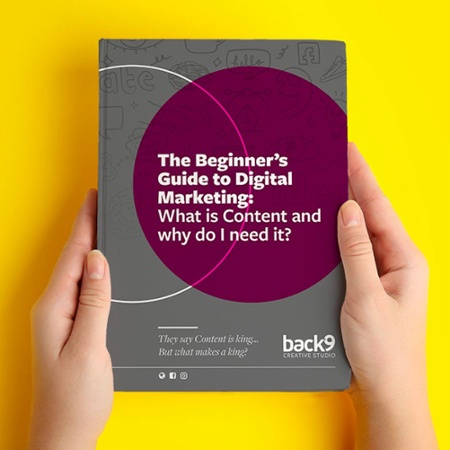Should I cut my Marketing Costs?

Filters
Results
Marketing is easy to view as an expense, which in turn makes it easy to justify cutting it as a cost. But what is the potential cost of cutting your marketing spend? When times are tough or looking bleak or there’s uncertainty in the air, all too often over the years I have seen people cut costs on marketing. It’s just a number on the PNL (Profit n Loss) sheet, right? Or is it something else entirely?
Is Marketing just another expense, or is Marketing an investment?
Marketing clearly comes with a cost. There’s no doubt about that. But is it also an investment? Will it bring more money in than is spent on it? Yes–but only if done properly. It needs to be seen as an investment, and it’s crucial to know that success may take time.
The marketing marathon
In the industry, a common phrase is that “marketing is a sprint, not a marathon”. And it’s true. Like in a marathon, the newer and less experienced you are, the longer you have to train and prepare. A brand new start-up with a handful of clients will take longer to see a return with marketing than a business with 30 years in the industry and a loyal client base.
Whether that return is a better business, better team morale, a more engaging place to work etc, the return will have a financial impact on the business itself. And like any investment, it is a long term game.
Cutting marketing during hard times can have the opposite effect, especially if you’re still in the “training” phase. But if you aren’t seeing results, the problem may not be with marketing itself, but may be the type of marketing you’re doing. One of the biggest advantages of Digital Marketing is that it’s easy to measure. You can see how many people visit your website, click on your ads, or fill out a contact form, or buy from your online store. Then, based on those results, you can emphasise what’s working and cut/change what’s not. Over time, as you build followers and gain more trust, you’ll find that you can get better results for your advertising dollar.
The Overnight Success lie
Anyone who has studied, worked hard, sacrificed, and started a business from scratch knows the cliche that is dubbed an overnight success. It is simply a fallacy. Besides the extremely rare case, it just doesn’t happen. Anything that will pay dividends in the long term is something that needs some serious dedication and commitment.
For our children to grow up successful, happy and fulfilled, we need to spend time with them when they are young. We need to build a stable foundation for them to become confident human beings. We need to help them understand and grow. Our staff, our team are the same. We have to encourage and invest in them. Even with the knowledge that yes, they may leave one day, it is still a fundamental pillar in which we must TRUST. It is an investment in them as much as it is your business.
And my friend, your marketing is in the same boat!
If you invest in the long-term, you will be rewarded if you keep at it. Just like your staff, who you (hopefully) want to nurture and see them grow, it takes an investment of time, resources, and effort to improve. Ultimately, they’ll get better at their job and become a valuable asset. If you get your team excited about what they do and they perform – because they want to – then this is ultimately going to produce an ROI. If you invest time in marketing (which is not advertising) and focus on the right activities, you will potentially see tremendous returns on the investment in the long run.
How do I invest in the right Marketing?
Well, firstly you need to find out what the “right marketing” is for your business. It may be different from others–even ones in the same industry. Ultimately, the right marketing and the right activities are the ones that lead you towards the end goal. So knowing what you want to achieve from your Marketing Strategy is very important too.
In this day and age, marketing is about telling a story, about engaging and attracting the people who believe what you believe. It is about educating them about your industry – especially if they don’t understand it well. The right marketing is about understanding who your customers are and how you can attract them and doing it where they actually hang out. You may instinctively know this or you may need the help of an agency like us, but that is up to you to decide and figure out.
If I was to define what I believe to be the “right marketing’ I would say it is producing helpful, unbiased, relevant content that will educate and inspire your buyers and potential staff alike. It’s about being customer-centric and getting to know and understand the philosophy of Inbound Marketing.
If you aren’t sure what content is, or what type is effective in 2021, take a look at our e-book The Beginner’s Guide to Digital Marketing: What is Content and why do I need it? You can download it by clicking the image below.
What is Inbound Marketing?
This is an article in its own right, but essentially, Inbound Marketing is a philosophy that attracts customers to you. Instead of going out to get customers through extensive advertising, you create content that brings them to you. Inbound helps to educate potential customers about your business and your industry and makes it easier for them to decide they like and more importantly, trust you. And as I mentioned earlier, the ROI for the right activities can be tremendous. I believe the one true currency that really matters when embracing and investing in Inbound is TRUST!
TRUST- the one true return on your Inbound investment
We’ve all heard the saying that it can take years to build trust and seconds to destroy it! Of course, your marketing and sales activity needs to be genuine and authentic. You can’t just say what you think people want to hear – that’s still an old school manipulative marketing tactic. Especially when it’s not true!
So if it is an investment to build trust, it makes sense to agree that once you’re trusted and respected, that if you remain genuine, then that status is easier to maintain right? So why after investing so much and gaining all of that momentum would you want to cut it?
Yes, marketing costs money, but Inbound marketing – if you genuinely want to educate and believe in being transparent, can return far more than money.
So should you cut costs on your marketing?
It’s easy for me to sit at my computer and type all of this, and for some people, they can’t decide if the chicken or the egg came first so they can’t make the leap of faith. And that’s ok. Although I believe marketing is an investment, it ultimately comes down to what you believe (although if you’re still reading at this point, there’s a fair chance you might agree with me on this one!) But still, it’s every business owner’s right to choose. So whether you should or shouldn’t cut marketing costs, that’s your decision.
However, keep in mind that although marketing has costs associated with it, marketing itself is not actually an expense when done right. In fact, if you’re willing to adopt an Inbound marketing mindset then using the right tools and software, such as Hubspot, the trade-off is that the cost may even provide you with an ROI of the one thing we possibly all value as much as trust… TIME!
It’s true. Inbound Marketing can not only help you gain a financial return if you’re willing to invest but an ROI of Trust and TIME too. Just remember that with Inbound especially, marketing is a marathon that takes time, investment, and resources, but can ultimately be extremely rewarding if you see it through.
If you’ve been considering working with a marketing company, take a look at our article about how to choose the right marketing company for you by clicking the button below.







